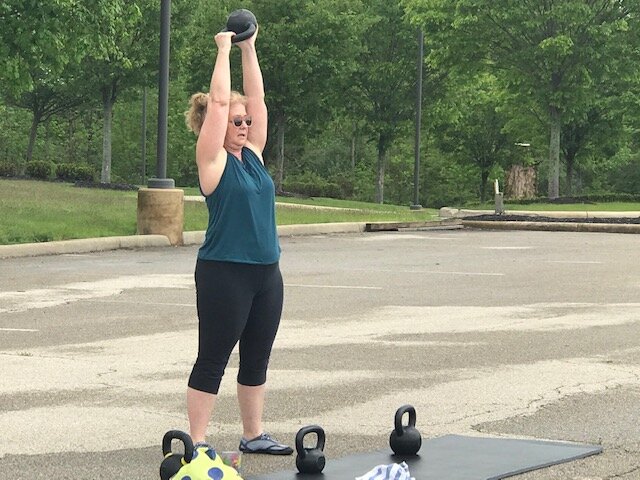I’ve always been struck by the beauty of movement, whether it’s a ballerina gracefully moving across the stage, a baseball hitter’s powerful swing, a skier masterfully navigating the mountain, or an athlete in the gym maneuvering heavy weights with ease.
Beauty is all around us in many forms and I try to take the time to appreciate how the many hours of repetitive practice allow the human person, at every level of athletics, to move with beauty, grace and ease. Thanks be to God for the incredible design of the human body and all that it allows us to do
The ability to appreciate beauty, in any form, is truly a gift from God. I was reminded of this recently as I listened to a Catholic podcast and the topic was goodness, beauty and truth. This time of year especially, when the trees are budding, the flowers are blooming, and all of nature becomes a flourish of green, it is a easy be thankful for the goodness, beauty and truth of God displayed in the majesty of His creation.
Beauty resides not only in our vistas and valleys, but also in literature, art, music, theatre, gardening, cooking, woodworking, athletics, and most especially in how we love and serve. Beauty resides in really any activity that we unite with God and that lifts our eyes and hearts to Him in thanksgiving. God generously pours his grace into us as we live, laugh, love, pray, play, move, share and create—each of us in our own way—and so we all contribute in some way to the beautiful tapestry of God’s creation.
What a powerful prayer to ask God to guide us in our creative, artistic and physical endeavors and that we do everything with pure hearts rooted in His love. Let us nurture and share our gifts and talents freely so that the goodness, beauty and truth of God flow out from us to others.
The pinnacle of beauty is love in the human soul. St. Pope John Paul II referred to the human person as the “masterpiece of God’s creation.” May we give thanks for the inner beauty of every soul which is like a shimmering jewel illuminating the light of Christ, each in our own way.
St. Augustine said, “How does that beauty bring us closer to Him? Since love grows within you, so beauty grows. For love is the beauty of the soul.”
Help us Lord to appreciate the goodness, beauty and truth of both the joys and the sufferings that we will inevitably experience in this life — and by your grace, may we unite all of it with the love of your Son Jesus Christ, who by the Cross, gives us new life.






































